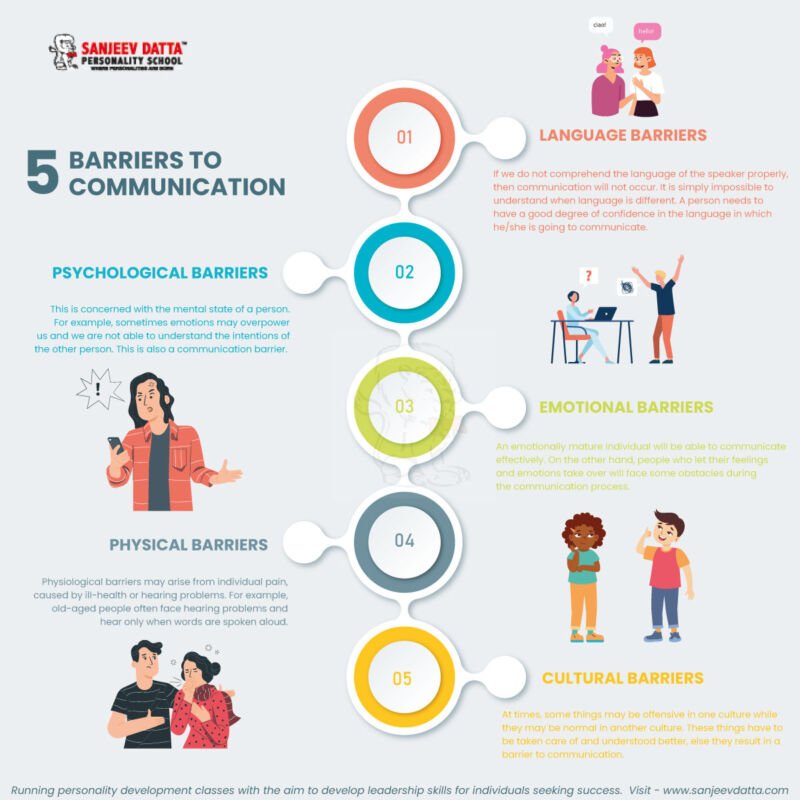Are you tired of feeling like your quiet nature holds you back in a world that seems to reward the loudest voices? Here’s the truth: **introvert personality development** isn’t about becoming an extrovert—it’s about amplifying your natural strengths while building the confidence to thrive authentically. Your introversion is not a limitation; it’s a superpower waiting to be unleashed. In this comprehensive guide, we’ll explore how you can develop your personality as an introvert, turning your quiet strength into a competitive advantage that opens doors and creates meaningful connections.
Understanding Introversion: Your Foundation for Growth
What Does It Really Mean to Be an Introvert?
Contrary to popular belief, introversion isn’t about being shy or antisocial. It’s about how you process energy and information. While extroverts gain energy from external stimulation, introverts recharge through solitude and deep reflection.
Key traits of introverts include:
- Preferring meaningful one-on-one conversations over small talk
- Thinking deeply before speaking
- Excelling in focused, concentrated work environments
- Valuing quality relationships over quantity
- Having rich inner lives and creative minds

The Introvert Advantage in Today’s World
Your quiet nature comes with built-in advantages that the modern workplace desperately needs:
- Deep Thinking Skills: You naturally analyze situations thoroughly before acting, leading to more thoughtful decisions.
- Active Listening: While others talk, you listen—making you an invaluable team member and leader.
- Independent Problem-Solving: You excel at working autonomously and finding innovative solutions.
- Authentic Relationships: Your preference for deep connections means you build stronger, more meaningful professional and personal relationships.
The Psychology Behind Introvert Personality Development
Rewiring Your Mindset for Success
The first step in introvert personality development involves shifting from a deficit mindset to a strengths-based approach. Instead of seeing your quiet nature as something to fix, recognize it as a unique operating system that needs the right strategies to flourish.
Research from Harvard Business School shows that introverted leaders often outperform their extroverted counterparts, especially when leading proactive teams. This isn’t because they become more extroverted—it’s because they leverage their natural strengths effectively.
Building Self-Awareness
True personality development starts with understanding your specific introvert profile. Not all introverts are the same. Some thrive in creative environments, while others excel in analytical roles. Some enjoy public speaking once prepared, while others prefer written communication.
Take time to identify:
- Your energy patterns throughout the day
- Situations where you feel most confident
- Communication styles that feel natural
- Work environments where you excel
- Social settings that energize rather than drain you
personality development for career change
Practical Strategies for Introvert Personality Development
1. Master the Art of Confident Communication
Preparation Is Your Secret Weapon
Unlike extroverts, who think out loud, you process internally. Use this to your advantage by preparing for important conversations, meetings, and presentations ahead of time.
Pre-communication strategies:
- Write down key points you want to make
- Anticipate potential questions and prepare thoughtful responses
- Practice important conversations with trusted friends or mentors
- Research topics thoroughly to build confidence in your expertise
Quality Over Quantity in Conversations
You don’t need to fill every silence or contribute to every discussion. When you do speak, make it count.
Effective communication techniques for introverts:
- Ask thoughtful questions that encourage deeper discussion
- Share specific examples and stories rather than generic responses
- Use the power of the pause—take time to formulate thoughtful responses
- Follow up conversations with well-crafted emails when you need time to articulate complex thoughts

2. Develop Your Leadership Style
The Quiet Leader Approach
Introvert personality development includes recognizing that effective leadership doesn’t require being the loudest person in the room. Quiet leaders often create more inclusive environments where everyone’s voice is heard.
Introvert leadership strengths:
- Creating psychological safety for team members
- Leading by example rather than through charisma
- Making data-driven decisions after careful consideration
- Developing others through mentoring and coaching
- Building trust through consistency and authenticity
Personality grooming classes can be incredibly valuable for introverts when they focus on enhancing your natural strengths rather than trying to transform you into an extrovert.

Strategic Networking for Introverts
Networking doesn’t have to mean working the room at large events. Develop a networking strategy that aligns with your energy levels and preferences.
Introvert-friendly networking approaches:
- Schedule one-on-one coffee meetings instead of attending large networking events
- Prepare conversation starters and questions in advance
- Follow up meaningfully after meeting new people
- Leverage online networking platforms where you can communicate thoughtfully
- Attend smaller, industry-specific events where conversations are more focused
3. Build Confidence Through Competence
Become the Go-To Expert
One of the most effective ways to build confidence as an introvert is to develop deep expertise in your field. When you know your stuff inside and out, speaking up becomes much easier.
Steps to build expertise:
- Choose 2-3 areas to develop specialized knowledge
- Read extensively and stay updated on industry trends
- Share your insights through writing or speaking when you feel prepared
- Volunteer for projects that align with your strengths
- Seek mentorship from other successful introverts in your field
4. The Power of Preparation and Practice
While extroverts might wing it, your strength lies in thorough preparation. This isn’t a weakness—it’s a competitive advantage that leads to higher-quality outcomes.
Preparation strategies:
- Create templates for common communications
- Practice presentations multiple times before delivering them
- Develop standard responses to frequently asked questions
- Build a personal knowledge base of resources and information
- Use visualization techniques to mentally rehearse challenging situations
Creating Your Personal Development Action Plan
1. Setting Realistic and Meaningful Goals
Your introvert personality development journey should be sustainable and aligned with your values. Avoid goals that require you to fundamentally change who you are.
SMART goals for introvert development:
- Specific: “I will contribute one meaningful comment in each team meeting”
- Measurable: “I will have two one-on-one networking conversations per month”
- Achievable: “I will prepare talking points before important presentations”
- Relevant: “I will develop expertise in data analysis to increase my confidence in meetings”
- Time-bound: “I will practice public speaking for 15 minutes twice a week”
2. Building Your Support System
Surround yourself with people who understand and appreciate your introvert nature while still encouraging your growth.
Elements of a strong support system:
- Mentors who are successful introverts in your field
- Friends and family who understand your energy needs
- Professional coaches or therapists who specialize in personality development
- Online communities of like-minded introverts
- Colleagues who complement your working style
3. Daily Practices for Continuous Growth
Energy Management
Understanding and managing your energy is crucial for sustainable personality development.
Daily energy management practices:
- Start your day with solitude and reflection
- Schedule demanding social interactions when your energy is highest
- Build in recovery time after challenging social situations
- Practice saying no to energy-draining activities
- Create quiet spaces in your work environment
Skill Development Routine
Consistency beats intensity when it comes to developing new skills as an introvert.
Daily development practices:
- Read industry publications for 20 minutes
- Practice speaking out loud to improve vocal confidence
- Journal about daily interactions and lessons learned
- Engage in one meaningful conversation per day
- Reflect on successes and areas for improvement
Ready to take the next step in your personality development journey? Explore personality development classes designed specifically for introverts or that honor your authentic communication style while building your confidence and professional presence.

Overcoming Common Introvert Challenges
Dealing with Open Office Environments
Modern workplaces can be challenging for introverts, but there are strategies to thrive even in less-than-ideal environments.
Strategies for open offices:
- Use noise-canceling headphones to create mental boundaries
- Schedule regular breaks in quiet spaces
- Communicate your working style to your manager
- Suggest walking meetings for important one-on-one discussions
- Create visual cues that indicate when you need focused work time
2. Managing Social Anxiety vs. Introversion
It’s important to distinguish between introversion and social anxiety. While introversion is a personality trait, social anxiety is a condition that can be addressed with proper support.
When to seek additional help:
- Physical symptoms during social interactions (racing heart, sweating)
- Avoiding necessary professional interactions due to fear
- Negative self-talk that goes beyond normal introvert concerns
- Impact on career progression due to avoidance behaviors
3. Public Speaking and Presentations
Many introverts excel at public speaking once they develop the right strategies and mindset.
Public speaking tips for introverts:
- Prepare thoroughly and practice extensively
- Focus on your message rather than yourself
- Use your natural storytelling abilities
- Practice in low-stakes environments first
- Remember that your thoughtful approach is an asset
The Future of Introvert Leadership
1. Changing Workplace Dynamics
The modern workplace is increasingly recognizing the value of diverse personality types. Remote work, emphasis on deep work, and collaborative leadership styles all favor introvert strengths.
Trends favoring introverts:
- Increased value on emotional intelligence and empathy
- Recognition of the importance of deep work and concentration
- Emphasis on thoughtful decision-making over quick reactions
- Growing appreciation for authentic leadership styles
- Technology enabling asynchronous and written communication
2. Building on Your Natural Evolution
Introvert personality development is not about becoming someone else—it’s about becoming the best version of yourself. As you grow and develop, your confidence will naturally increase, making social and professional interactions easier.
Signs of successful introvert development:
- Feeling energized rather than drained after meaningful interactions
- Speaking up confidently when you have valuable input
- Building deeper, more satisfying professional relationships
- Taking on leadership roles that align with your strengths
- Feeling authentic and comfortable in your own skin
Frequently Asked Questions
Q: Can introverts really become confident speakers and leaders?
A: Absolutely! Some of the most effective leaders and speakers in history have been introverts. The key is developing confidence through preparation, expertise, and authentic communication rather than trying to imitate extroverted styles.
Q: How long does it take to see results from introvert personality development?
A: While some changes can be noticed within weeks, meaningful personality development is a lifelong journey. Most people begin to see significant improvements in confidence and communication skills within 3-6 months of consistent practice.
Q: Do I need to take personality development classes, or can I develop on my own?
A: While self-development is possible, personality development classes designed for introverts can accelerate your progress by providing structured learning, practice opportunities, and peer support in a comfortable environment.
Q: What’s the difference between being shy and being an introvert?
A: Shyness is about fear of social judgment, while introversion is about energy preferences. Many introverts are socially confident, and many extroverts experience shyness. Understanding this distinction is crucial for effective personality development.
Q: How can I explain my introvert needs to my extroverted colleagues and managers?
A: Focus on your strengths and working style rather than limitations. Explain that you do your best work when you have time to prepare and reflect, and that you contribute most effectively in certain types of interactions and environments.
secret to persuasive communication
Conclusion: Embrace Your Quiet Power
Your journey of introvert personality development isn’t about changing who you are—it’s about unleashing who you were always meant to be. In a world that often celebrates the loudest voice, remember that the most profound impacts often come from those who speak thoughtfully, listen deeply, and lead authentically.
The strategies and insights shared in this guide provide a roadmap for developing your unique strengths while building the confidence to thrive in any environment.
Your quiet strength, deep thinking, and authentic approach to relationships are exactly what the world needs. By developing these natural gifts with intention and strategy, you’ll not only achieve your personal and professional goals but also inspire other introverts to embrace their own quiet power.
Start your transformation today. The world is waiting to hear what you have to say—in your own authentic, powerful way.
Remember: Your introversion is not something to fix—it’s something to celebrate and develop. The world needs your unique perspective, thoughtful approach, and quiet leadership now more than ever.


